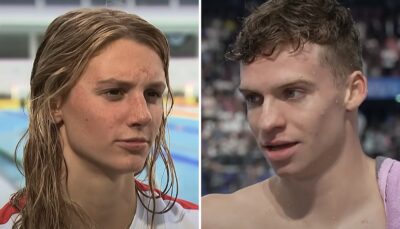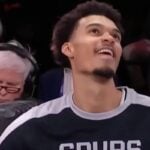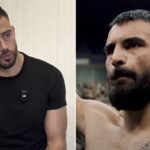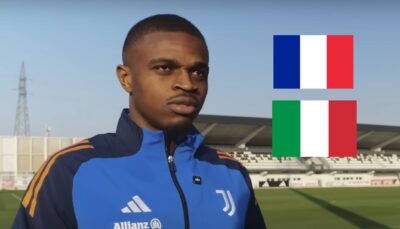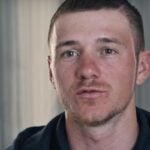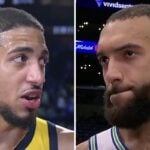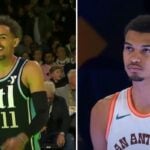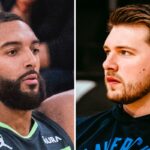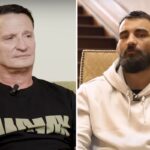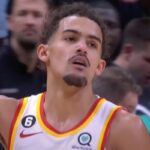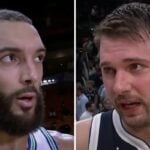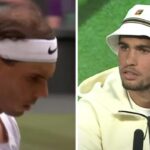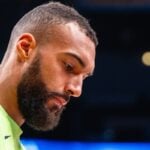She is one of the biggest icons in Spanish basketball, as well as one of the most emblematic playmakers in women’s EuroLeague, setting a record of 1000 assists in the competition this year. She had decided that the Rio Olympics would be her last international competition but finally, after some reflection, Laia Palau will make one last push with the Spanish team, in a bid to take the EuroBasket title in Prague this summer…Prague, the city she’s made her home these past two years, and where she’ll also play her last club games in Europe over the coming weeks. In order to pay our own homage to this legend of women’s basketball, we asked her a few questions regarding her immense career, which includes 9 international medals with Spain, 2 EuroLeague titles and a total of 10 domestic championships.
YOUR CAREER
Parlons-Basket: At the very beginning of your career, you spent two years at Bourges – from 2004-2006. What memories do you have of your time in France?
Laia Palau: For me it was a really great experience to be in France. I really loved it. I can’t talk about other clubs, but at Bourges I was able to work really well. I was lucky enough to be part of a very good team and be coached by Pierre Vincent. It was the first time that I’d lived away from my home town of Barcelona and I think really it set me up for the rest of my career. I spent two good years in France and then I had the opportunity to return to Spain and play for Valencia…so it definitely opened doors for me.
PB : So obviously it’s a long time since you played club basketball in France, but do you still follow the French league?
LP: No, not at all, to be honest (laughs). I’m not really that into it all, not to that extent…I know people who are involved but I don’t really follow, no…It’s true that this year I’m a bit more aware of what’s going on because I’ve got a friend who lives in Bourges, and he keeps me up to date, and I also get on well with Elodie Godin – she’s a friend, so I know a bit about what’s going on at Montpellier…but apart from that…
PB: That’s understandable…if you had to keep up with all the championships you’d played in, your head would be spinning, I should imagine!
LP: That’s for sure. I really love basketball but I don’t know, it’s hard to keep up with everything.

PB: In terms of the Czech league – it’s now playoff time. Tell us a bit about your season…
LP: We’re about to start the final against Hradec Kralove. I have to admit, in the Czech league, Prague hasn’t really got a lot of competition….and I don’t know why really. It was something that really struck me the first year I played here, actually. I had a great deal of respect for Czech basketball because at the time they had a really strong international team – it was a really good generation…I remember playing in quarter-finals, semi-finals and you could usually count on Russia and the Czech Republic to be there…but lately they’ve more or less disappeared. When I arrived here and saw the level generally, I can’t deny I was pretty amazed – the players are big physically so that’s not a problem, they know how to play basketball…but the way things stand at the moment, I don’t really know how we’ve got to this state of affairs…but I suppose, when I talk to coaches and players here, they seem to think they had a great generation but as those players started to retire, that was the end of their golden age…But there again, in Spain we’ve had great generations and we manage to keep them coming! We haven’t just stopped, we’ve kept on achieving and each generation writes its own chapter in our basketball history.
PB: But I suppose as a player, that must be frustrating. If the domestic championship is more or less a formality, then it’s only EuroLeague that really represents a challenge…
LP: Yeah, absolutely – at the end of the day you’re not really playing. You only play one match per week and that’s okay, but it’s hard to maintain the rhythm necessary, although from a personal point of view, it’s probably a good thing: we play in the Czech league, but those matches don’t really wear you out either physically or mentally, so you can concentrate on being ready for EuroLeague matches. But on the other hand, it is hard to keep that intensity level. For example, when we came to the Final Four, it was a good month that we hadn’t had any real matches… I mean, we were playing the quarters and semis of the domestic league but it really isn’t the same level. So when we came up against Kursk, we were like, « oh yeah, that’s how it is to play a top team again…that’s the level you’ve got to be at! » (laughs)…
PB: So let’s come to the inevitable question – your decision to retire! Is it a decision that’s taken you a long time to make?
LP: Let’s put it this way – it’s not something that just came into my head. I didn’t just wake up one morning and say to myself, « Okay, that’s the end! » No, I’ve been thinking about it for a long time but it’s hard to explain – I wanted to stop whilst I was still playing like Laia Palau, if that makes sense…I didn’t want to carry on if I wasn’t at my true level. But to be at your true level, you’ve got to train – you’ve got to train every day, in fact!…and I think I’m just a bit tired of it (laughs). But honestly, I still enjoy basketball; I play, my body holds up, it’s all good! I haven’t got any injuries, I’m okay…but now I want to do other things too. I already know how to play basketball, I’ve managed to reach this level…but now I can think about trying something else.
PB: And next year you’ll be going to Australia, so you won’t be completely giving up playing basketball?
LP: Yeah, I was planning to go down there. I don’t want to stop playing, just like that, because I’m still enjoying it and I know I’ve still got something to give. But I’d like to use basketball to take me in other directions and do other things as well. This is a great opportunity, which I welcome, and I’ve got a tremendous amount of respect for Australian basketball as well. Their players work hard and they’re very strong, as we see with the national team. Even if the domestic league’s not at the same level as here in Europe, I’m still keen to experience life there…We’ve said it before; if I carry on being Laia Palau, and carrying on as I have been, playing in EuroLeague, in the Spanish national team, my life will just go on as it has done in the past…whereas, if I go to Australia, there may well be opportunities for me to do other things – my life won’t be all about basketball. For sure, there’ll be less pressure, probably less training obligations and their championship is shorter. It lasts six months, which gives me six months to think about getting involved in other projects and what else I might like to do.
NATIONAL TEAM
PB: With a lot of caps, there’s no doubt whatsoever that you’re one of the legends of the Spanish national team. Your list of honours also makes very impressive reading: six appearances in the European Championships, for which you’ve won five medals, four appearances at the Worlds, where you’ve won two medals and two Olympic Games. What stays with you most from your experience with the national team?
LP: Simple – the Olympic Games! That might sound a bit strange, when you’ve won a silver medal at the World Championships (in 2014), and that was an incredible moment, where I remember the level of competition was probably even higher than at the Olympics…but what can I say; the Olympics has got that bit of added glamour…(laughs). And I’m sure I feel that way because it happened at the right time in my career, that’s to say, at the end, when I was already starting to take stock. So I thought to myself – yep, I really have done everything now! Of course that doesn’t stop me wanting to win the gold medal at the Euros this summer (laughs) but you have to say, the Olympics is something special…But on the other hand, EuroLeague is also very important to me. You work eight months for it, a whole season with a club and it’s a real team effort and the focus for the season…whereas the national team amounts to one month per year, and that month goes really fast. And even if I say that the Olympics was the pinnacle of my career, and I’ve had fourteen years playing for Spain, EuroLeague is also something incredibly special. When I think back to the one we won here (in Prague, in 2015), it was really magical. The one we won with Valencia was also fantastic. It was a real long-term project at the club – we worked six years for it. And when we won it, it was really special. But if I really had to choose one achievement, including the gold medal we won here in France in 2013, it’s still be the Olympics…I’ve got so many career memories to choose from though…

PB: When Amaya Valdemoro retired in 2014, Lucas Mondelo named you as the new Spanish captain. What did that mean to you?
LP: Ooooh…Actually, it was quite a lot of pressure – all of a sudden I’m captain of the national team, and I’ve got to follow Amaya. It was quite a lot to live up to, but I think I was the right age and had, had the right experience to take it on. I’d been captain of Valencia, as well as Barcelona, so it wasn’t completely new. And I think it helped that the generation we had (Anna Cruz, Silvia Dominguez, Alba Torrens, Marta Xargay etc…) was already in place and starting to really mature. For example, when I was playing for Barcelona, Anna Cruz and Silvia Dominguez were already juniors there. We’ve got the same understanding of basketball so it wasn’t that difficult to captain this team – we already knew each other. They’re some players but they’re always on the same page, in terms of the work we’ve got to do and how to go about it…so it’s easy to be captain, with teammates like that.
PB: We mentioned it a little bit already – there’s a real basketball rivalry between France and Spain, isn’t there…Do you think it’s a healthy one?
LP: As far as I’m concerned, I think it is – yes. On the court, everybody’s really up for it but it doesn’t go too far. For me, playing against Céline Dumerc is quite something, I can tell you (laughs)…She pushes me to raise my level and to get better, and I think that’s really important. I really respect French basketball, and I think the same goes for the Spanish in general. In one tournament, we might win; in the next one, it’ll be your turn. That’s how it goes – we’re not afraid of it and we respect each other a lot. Any match we play against France is going to be tough: France is a really strong defensive team, which doesn’t necessarily suit us, physically they’re very tough and single-minded in their game…whereas we’re a little bit crazy !…(laughs). We struggle against France, and vice versa…and I think that’s a good thing – it’s good to see two different styles of play. I quite like playing France, well, that is to say – I’d prefer to be playing them at the end of a tournament, if possible (laughs).
PB: This summer, EuroBasket will take place in Prague, where you’ve been playing your club basketball for two years. You’ve already announced that you’ll be ending your international career at this tournament. Is this the way you wanted to retire?
LP: It is really, yes. I’m pretty glad about it. After the Olympics, I said I was going to retire…but you know, the people at the federation, the coaches, my teammates, they all wanted me to carry on, so I really felt supported by everyone…So here we are – Prague is going to be the last stop of my career and I’m happy about it. I’m going to finish things here, say goodbye to Prague – the city, the club and everything. It really is a gift to be able to do that.
FINAL FOUR
PB: In this year’s semi-finals, you (Prague) played a really good game against Kursk – you asked them difficult questions, you took the game to overtime. But even so, is there a feeling of disappointment about the way things ended? Why do you think you came up short?
LP: Yeah, there’s obviously disappointment. No-one likes losing…but at the same time, I think we did everything we could. I don’t think there’s any real reason for us to have regrets. The club’s goal for the season was to reach the Final Four, so already, to be there in the top four teams in Europe was an achievement – it wasn’t an easy task, by any means. In the match against Kursk, it was ours for the taking at a certain point towards the end – I’m not talking about the overtime, because Sonja Petrovic was out of the game (for five fouls) by then. So there’s no point really in harbouring regrets – against Ekaterinburg, well, first of all, it was Ekaterinburg, and we were tired…but we made a real match of it. So I’m satisfied; I didn’t finish a winner, but I was still moved – I finished as a fighter on the court.
PB: Finally, it has to be said – Spain was very well represented at this year’s Final Four (Alba Torrens, Sancho Little, Anna Cruz, Lucas Mondelo, Marta Xargay and yourself).
LP: Yeah, that’s what we keep telling ourselves (laughs). We have to play abroad, because the Spanish domestic league’s not at the level it has been in the past…but now Spanish players are a desirable commodity…There’s Christina Ouvina at Orenburg, Nuria Martinez and the coaches (at Schio, for example), Silvia Dominguez, Laura Gil at Salamanca etc. There are lots of us at the top level, in a variety of different positions.

The Parlons Basket Féminin team would like to thank Laia for very generously taking the time to talk to us (in french) and wish her the very best for this summer.
Translation : Rachel Cox


